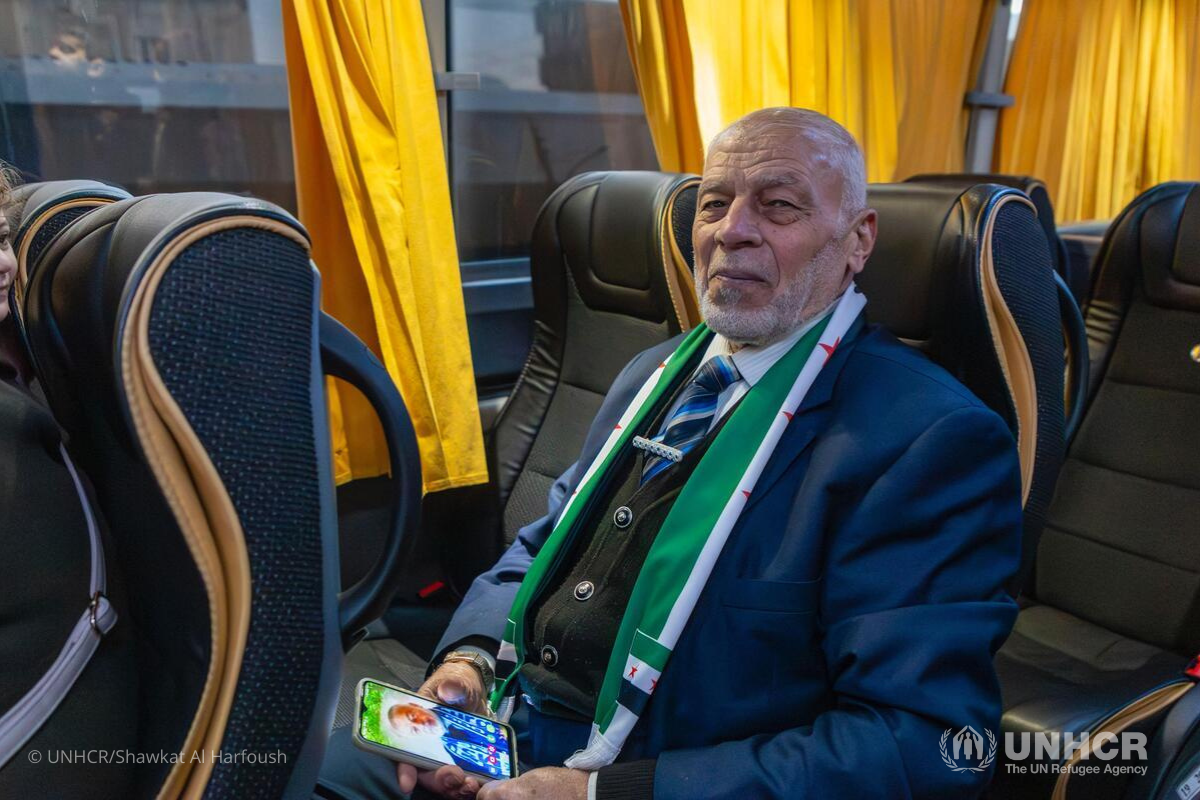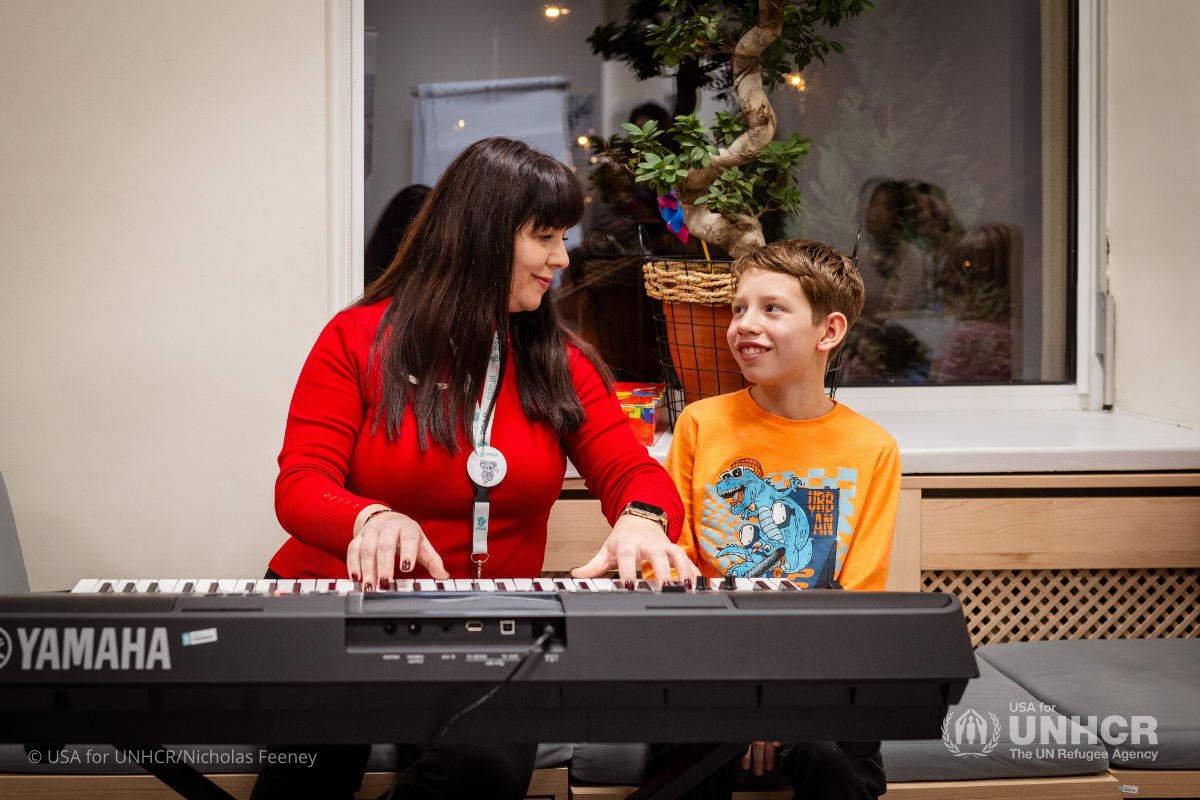Love amidst displacement: Six short stories that show how connection can carry people through the darkest times
When a person is forced to flee their home, they leave behind nearly everything in their life — their house, job, belongings and many of their loved ones. But, whether they escape with the people they love or form new connections where they find safety, refugees often overcome some of the most challenging obstacles with the support and compassion of the people around them.
Some refugees lean on their partners as they rebuild their lives, while others look toward younger generations for hope for the future. Some begin to feel at home when they join a team, while others bond over shared interests. No matter how the connection forms, love has the power to transform lives.
Take a look at these six short stories of love, family and friendship to see how love can bring light into the lives of those who have been forced to flee, even during their darkest moments.
Taisiia and Anatolii
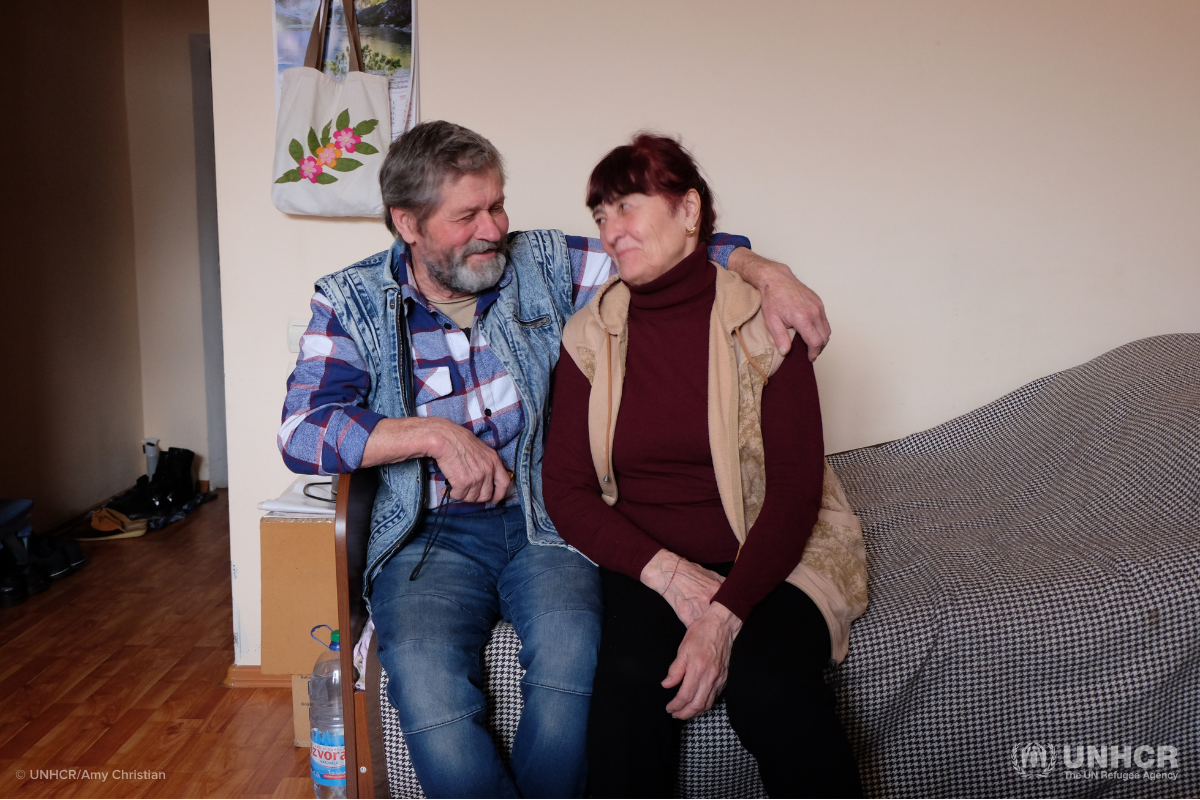
Taisiia and Anatolii met on a dance floor 50 years ago. Eight months later, they were married. Their love for each other is as strong as ever this Valentine’s Day, but they miss their children, grandchildren and their home.
When Russia first invaded Ukraine, the couple didn’t want to leave the city of Odessa, where they’d built a life together. But, after much persuasion from their son, Taisiia and Anatolii fled to neighboring Moldova.
They’ve found safety and a warm welcome in Moldova but dream of being reunited with their family.
“We hope that our family will come together again because we are spread all over the world: Germany, Poland, Moldova and Ukraine…We would like to meet in one place – of course, we’d like that to be at home. We all dream, and we all wish for it.”
Throughout the toughest times of their lives, UNHCR has been there for Taisiia and Anatolii — providing a safe, warm place to live and essential items like warm bedding, winter clothes and a heater. UNHCR has also helped the couple with cash assistance, so they don’t have to choose between critical things like buying medication or having enough food.
Carolina and her family
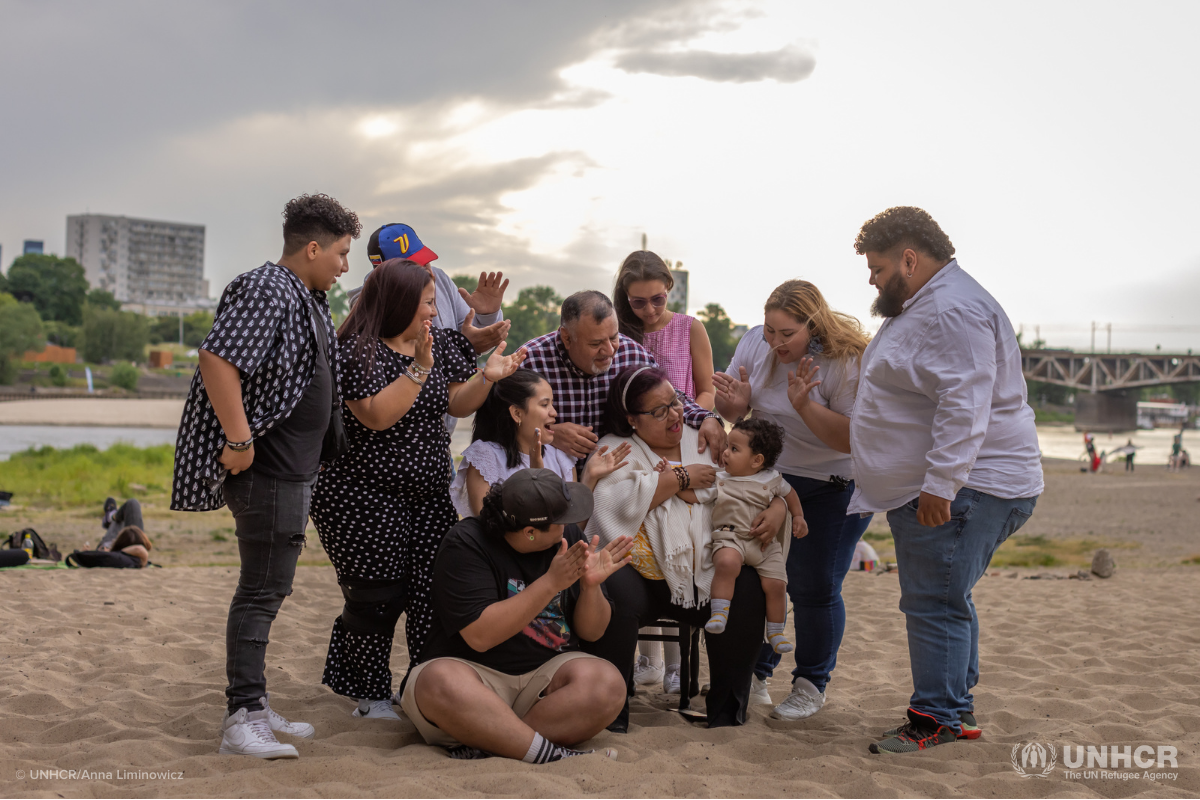
 “When I was a little girl, my parents used to take me to de Cata beach. This place in Warsaw reminds me of my childhood and gives me a sense of security."
“When I was a little girl, my parents used to take me to de Cata beach. This place in Warsaw reminds me of my childhood and gives me a sense of security."
Carolina and her family of nine fled from Venezuela to Poland in 2019. She misses her childhood home and working as a dentist in Caracas, but violence made it impossible for her to stay in Venezuela.
Carolina is a survivor of gun violence, and was shot in the back during a shootout between gangs. “The last few years in Venezuela were terrible, and I don't want to remember them,” she explains.
In Poland, she feels safe. Carolina loves barbecuing with her husband, sons and grandchildren. But her greatest joy is sharing time with her one-year-old grandson.
Saido, Doris and Nyagwa
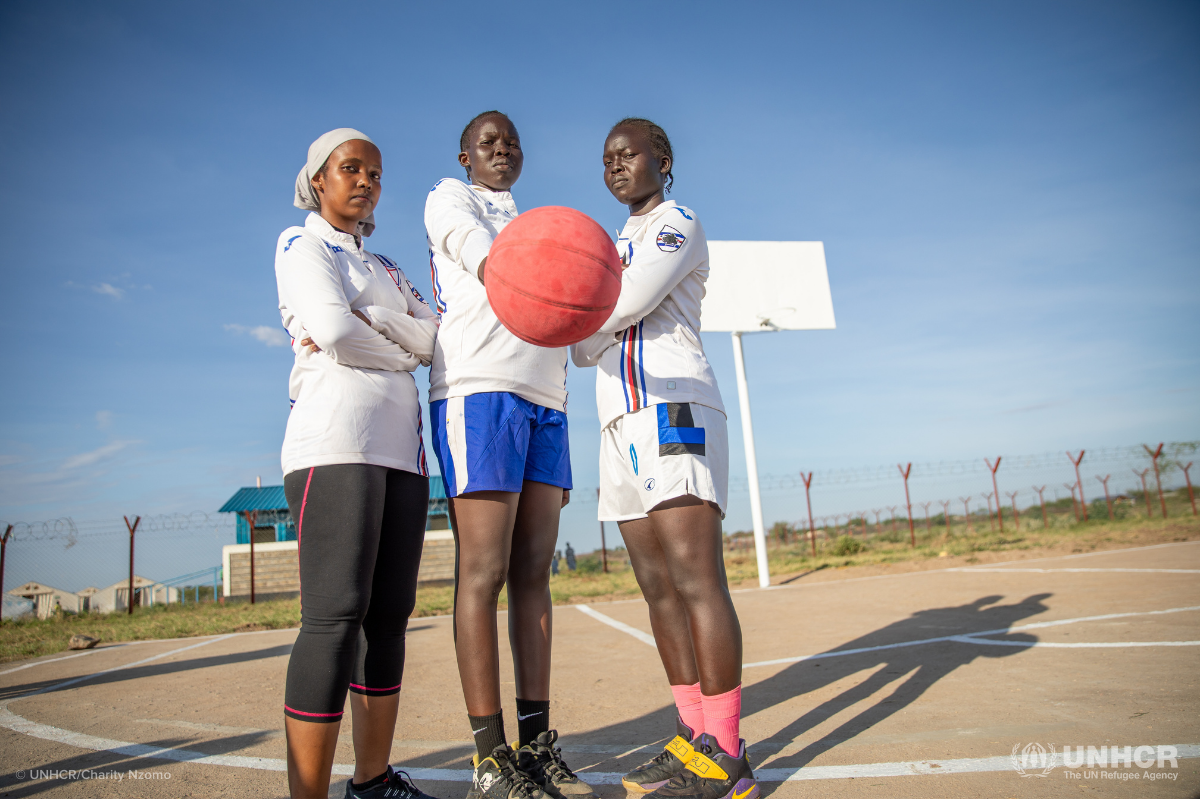
Saido is a 25-year-old Somali woman with a love for basketball that goes far beyond the court. For Saido, basketball is not only about staying active, it’sabout connecting across cultures in the refugee camp. She has experienced how sports bring young people together, creating friendships and building a supportive community, as Saido has found with Doris and Nyagwa.
“Sports bring youth together here in the camp,” she explains. “It has a very big impact for the refugee community.”
Saido is passionate about increasing access to sports for refugee girls, recognizing the incredible impact sports can have on their lives. The love girls can discover, both for the sport and for their teammates, can help transform their futures — offering pathways to education and providing alternatives to early marriage and early pregnancy.
Mashayikh and Ibrahim
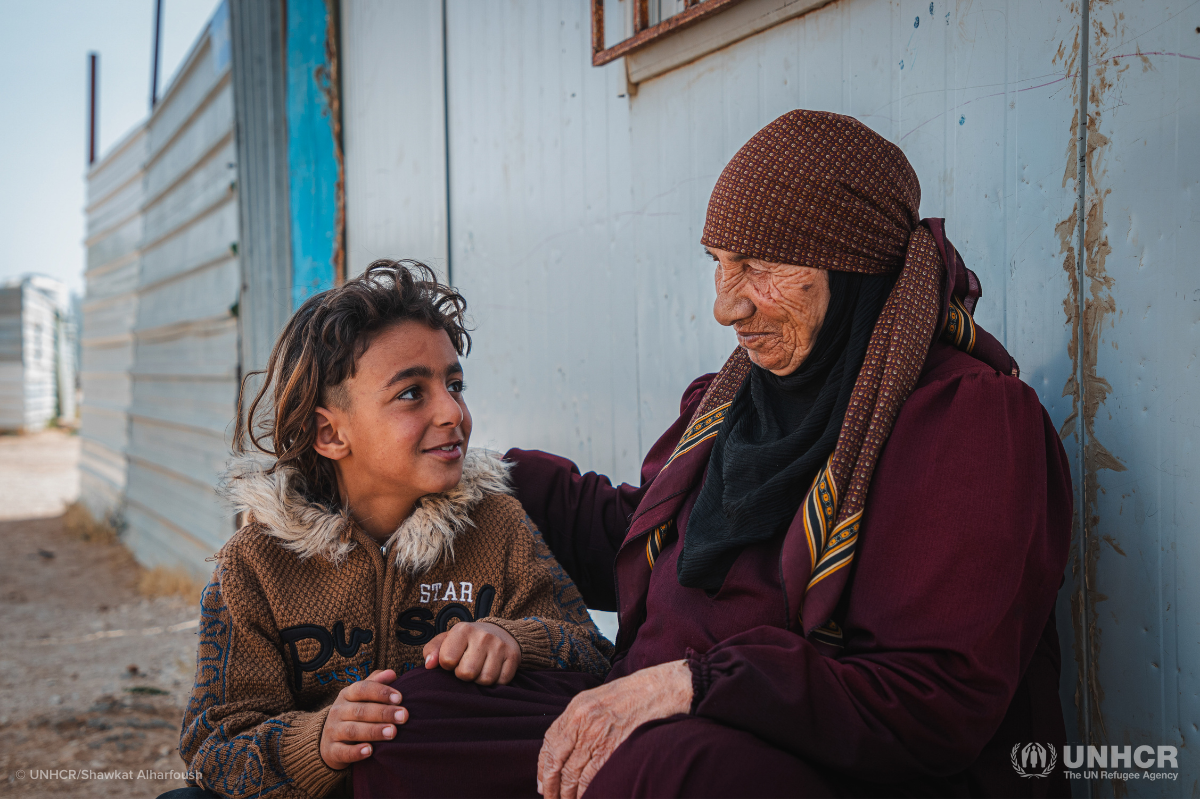
Mashayikh, a widowed Syrian refugee, fled to Jordan in 2013, two years after the conflict in Syria began. For the last decade, she has lived with her sons and grandsons at the Za’atari refugee camp in Jordan. Though she struggles with a chronic illness and the challenges of prolonged displacement, she is happy because she has her children by her side.
"No love is comparable to the love of your own children; my children and my grandchildren mean the world to me; seeing them happy makes me happy,” shares 80-year-old Mashayikh as she sits with her 12-year-old grandson, Ibrahim, in front of their family’s shelter. “I fought to raise them and faced many challenges. They are God's gift to me."
Omaira and Yolanda
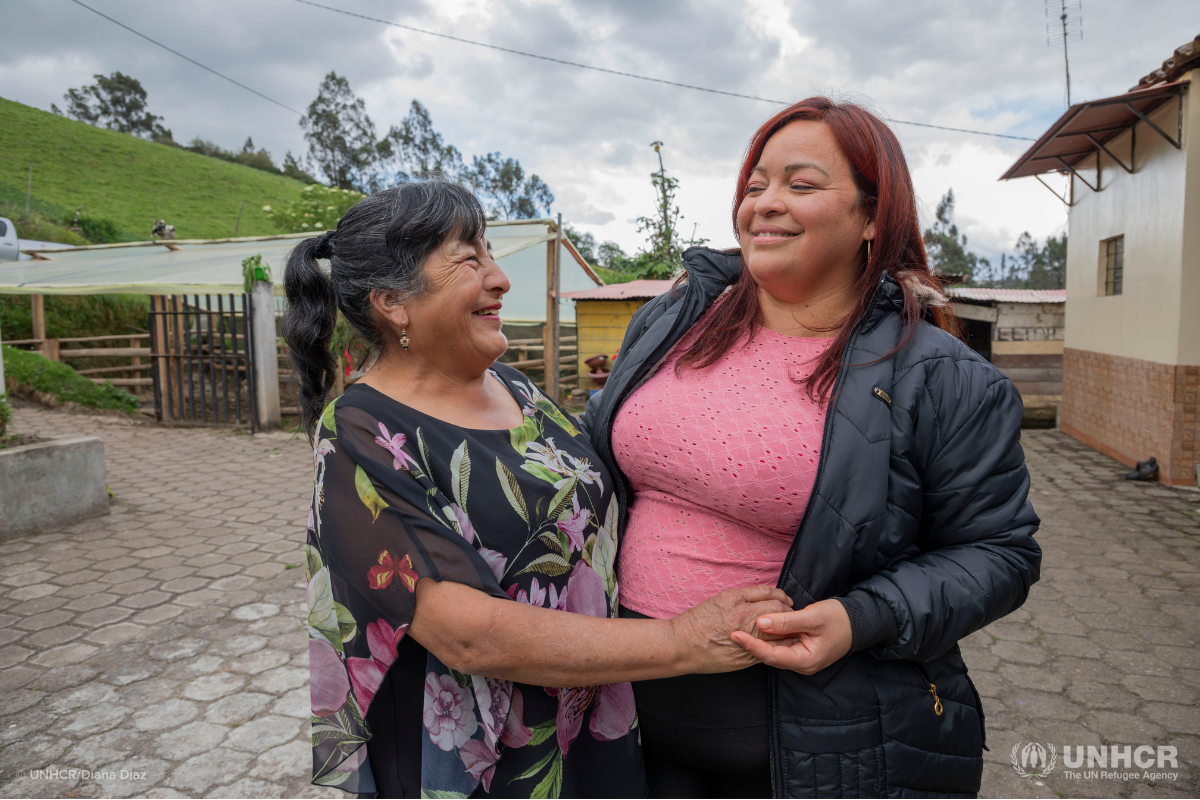
Omaira (right), from Venezuela, and Yolanda (left), from Ecuador, and met during the pandemic through virtual lessons about hydroponic gardening and community banking run by UNHCR and HIAS.
"We've created a great friendship. She is one of the best people I've met," says Yolanda. "Much more than growing crops, this project has helped us create support networks when we desperately needed them," says Omaira.
Now, the two friends not only share each other’s love and friendship, but they also run a group together that grows hydroponic lettuce and facilitates loans and community savings. They received support from UNHCR to start their community banks, which help them with cost needs ranging from crop production to school supplies.
Hachim and Ayad
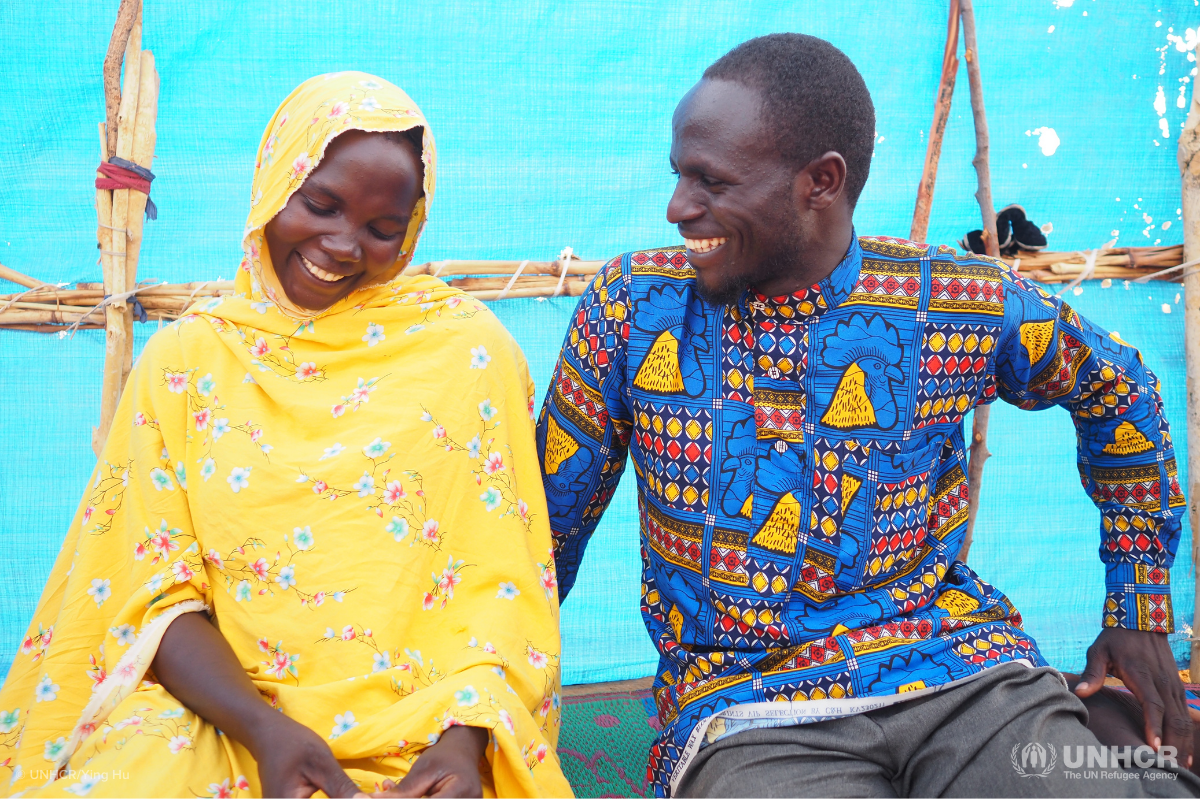
Hachim and Ayad met in college five years ago. He was studying math and physics, and she was pursuing a degree in agricultural studies. The young couple married in 2022 with plans to start a family. However, their aspirations were abruptly halted in June 2023 when the war broke out in El Geneina, Sudan, forcing them to flee their home.
During their escape to Chad, Hachim and Ayad were separated amidst the chaos. Hachim was shot in the foot by armed men. It was only thanks to the kindness of strangers who transported him to Chad on a donkey that he survived. Ayad also sustained shoulder injuries from a fall during her escape to Chad.
In a twist of fate, they found each other again in a hospital in Chad.
After nearly a year of recovery, Hachim’s condition is now stable, and the two have relocated from the border of Sudan and Chad to the Farchana refugee site. Upon their arrival in Farchana, Hachim and Ayad eagerly began transforming their shelter into a home so they could start a family and a new life in Chad after their perilous journey.
How you can help…
UNHCR, the UN Refugee Agency, supports refugees who have been forced to flee violence, war and persecution. Our donors help refugees in their greatest time of need with shelter, food, water and medical care, and their support builds awareness for resettled refugees living in the U.S. With your help, more refugees will have the opportunity to build peaceful lives and give their families a bright future.

